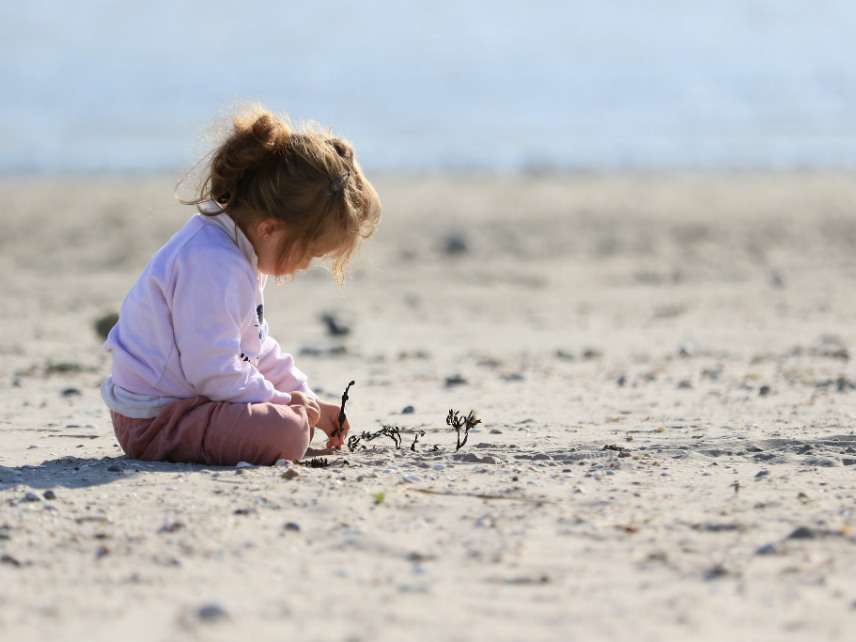Arizona Supreme Court Clears Way For Adoption of American Indian Child by Non-Native Parents
The local Native American tribe had tried to stop the adoption.

In considering the rights of Native American foster children, should the emphasis be placed on their status as Native Americans or as children?
The Arizona Supreme Court chose the latter, clearing a non-native couple to adopt their foster daughter over objections of a local Indian tribe.
The court's ruling is a challenge to the controversial 1978 Indian Child Welfare Act (ICWA). Proponents say the act is essential to keep Native American communities together. Critics contend it establishes a racially discriminatory system that negatively affects the safety and welfare of Indian children.
At the time of ICWA's passage, removal of Native American children from their homes was "truly an epidemic that threatened native American children and their families," David E. Simmons, Government Affairs Director for the National Indian Child Welfare Association, tells Reason.
ICWA sought to stem this so-called epidemic by conferring upon sovereign tribal nations the right to be involved in the adoption process of their citizens. Tribes were free to employ "community-based services and community-based knowledge" in deciding on the placement of children.
ICWA, however, has little do with the legal or cultural attachment of a child to a tribal community, and everything to do with a biological attachment to a racial group, Timothy Sandefur, Vice President for Litigation at the Goldwater Institute, says.
The Goldwater Institute has intervened in a number of ICWA cases including this most recent one in Arizona.
"If you have the right blood cells in your veins, then ICWA applies a separate and substandard set of rules that makes it harder to protect you from abuse and neglect, and harder to find you an adoptive home," Sanderfur says.
In 2014 an infant identified as A.D. in court documents was born to a member of the Gila River Indian Community. Both A.D. and her mother tested positive for amphetamines and opiates and the Arizona Department of Child Services ordered the child placed her current non-native foster parents.
Sarah and Jeremy H., according to the court documents, moved to adopt A.D in Arizona state court in June 2015. But despite repeated failures to find a suitable tribal family for A.D., the Gila River Indian Community blocked the adoption claiming tribal court jurisdiction through ICWA.
The Arizona Supreme Court unanimously rejected the Gila River Indian Community's argument, but broader concerns about the authority of ICWA remain. The act's departure from standard adoption law has exposed Native American children to parents who have systemically physically and sexually abused them, Sandefur says.
Laws that govern foster care for children of all other races, by contrast, require "reasonable efforts" be made to reunite children and parents, but draw the line at trying to return kids to homes where they have experienced "systemic abuse."
One example was the case of Shayla H. Under the ICWA requirement she was returned to a sexually abusive father—a member of the Rosebud Sioux Tribe—only to be removed a month later after further incidences of sexual abuse.
In Minnesota, three siblings were removed and returned to their alcoholic parents so many times child services workers stopped keeping track of the number of days removed at 500.
At the behest of the North Dakota Spirit Lake tribe, Laurynn Whiteshield and her twin sister, were taken from a non-native foster family and placed with her Native American grandfather and a step-grandmother charged eight times with child abuse.
A little more than a month later the step-grandmother was charged with murdering Laurynn Whiteshield.
The most recent Arizona case, Sandefur says, was a narrow victory decided on more technical and procedural grounds. The Goldwater Institute has brought a class action suit in federal court on behalf of off-reservation Indian children subject to ICWA to broaden its impact.
The case is currently before the Ninth Circuit Court of Appeal.
The goal, Sandefur says, is not to strike down the entire law or undermine the authority of Indian tribes.
"It [ICWA] needs to be amended," he says, "with the principle in mind that all Indian children are citizens of the United States entitled to equal protection of the laws, and that means no separate rules based on biology."
Rent Free is a weekly newsletter from Christian Britschgi on urbanism and the fight for less regulation, more housing, more property rights, and more freedom in America's cities.


Show Comments (33)